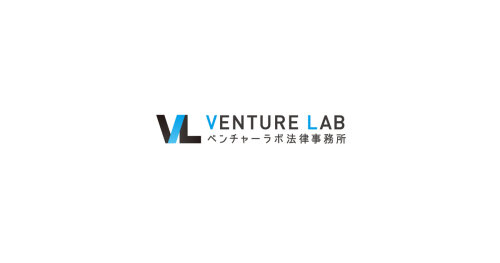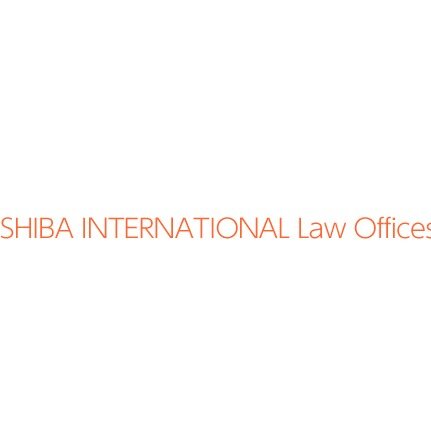Best Intellectual Property Lawyers in Tokyo
Share your needs with us, get contacted by law firms.
Free. Takes 2 min.
List of the best lawyers in Tokyo, Japan
About Intellectual Property Law in Tokyo, Japan
Intellectual Property Law in Tokyo, Japan, governs the protection of creations of the mind, such as inventions; literary and artistic works; designs; and symbols, names, and images used in commerce. Japan has a well-established legal framework for protecting intellectual property (IP) rights, which includes patents, trademarks, copyrights, industrial designs, and trade secrets. The Japan Patent Office (JPO) is the central government body responsible for the administration of IP protection. Tokyo, being the nation's capital and economic hub, is particularly active in the field of intellectual property, hosting many businesses and creatives whose rights are governed by these laws.
Why You May Need a Lawyer
There are several common situations where obtaining legal help in the field of Intellectual Property could be beneficial. If you are an inventor seeking to patent a new technology, a creator wanting to copyright your original works, a business owner needing to secure a trademark for your brand, or if you believe someone is infringing upon your IP rights, legal guidance is essential. Lawyers specializing in IP can not only help you register your rights but also enforce them, negotiate licenses, and handle litigation should disputes arise.
Local Laws Overview
The key aspects of local laws relevant to Intellectual Property in Tokyo, Japan are rooted in the following legislations:
- The Patent Law - for inventions.
- The Utility Model Law - for utility models.
- The Design Law - for industrial designs.
- The Trademark Law - for trademarks and service marks.
- The Copyright Law - for literary, artistic, and other creative works.
Frequently Asked Questions
How do I patent an invention in Tokyo?
To patent an invention in Tokyo, you must file an application with the Japan Patent Office. The invention must be novel, inventive, and industrially applicable. A patent provides exclusive rights typically for a period of 20 years from the filing date.
What is the difference between a trademark and a service mark?
A trademark identifies goods provided by a company, while a service mark identifies services. Both offer legal protection against unauthorized use and are registered with the JPO.
How long does copyright last in Japan?
Copyright in Japan typically lasts for the life of the author plus 70 years. For corporate or anonymous works, it lasts for 70 years from publication.
Can foreign nationals register IP rights in Tokyo?
Yes, foreign nationals can register intellectual property rights in Tokyo, but they may need to do so through a registered local agent or attorney.
Is it mandatory to register IP rights?
Registration is not mandatory for copyright protection, as it arises automatically upon creation. However, patents, trademarks, and designs require registration for protection under Japanese law.
What can I do if someone is infringing on my IP rights?
If someone is infringing on your IP rights in Tokyo, you can take legal action, such as sending a cease and desist letter, seeking an injunction, or filing a lawsuit. A lawyer can advise on the best course of action.
Does Japan recognize international IP registrations?
Japan recognizes international IP registrations made through treaties like the Patent Cooperation Treaty (PCT) for patents and the Madrid System for trademarks.
How can I search existing IP rights in Japan?
You can search existing IP rights in Japan through different databases provided by the Japan Patent Office, which include patents, utility models, designs, and trademarks.
What is the cost of IP registration in Tokyo?
The cost varies depending on the type of intellectual property. The JPO website provides a schedule of fees for filings, registrations, and renewals.
Can I license my IP rights to others in Japan?
Yes, you can license your IP rights to others in Japan, and such agreements should be well-documented, ideally with the assistance of a lawyer to ensure adherence to Japanese law and proper protection of your rights.
Additional Resources
Several resources are available for those seeking guidance on Intellectual Property in Tokyo, Japan, including:
- The Japan Patent Office (JPO) - for official filings and resources.
- The Intellectual Property High Court - for cases involving intellectual property disputes.
- The Japan Intellectual Property Association (JIPA) - for industry-related information and networking.
- Japan External Trade Organization (JETRO) - for business and IP-related advice for foreign companies.
Next Steps
If you need legal assistance with Intellectual Property matters in Tokyo, consider taking the following steps:
- Identify the specific nature of your IP issue or requirement.
- Research local attorneys or law firms that specialize in Intellectual Property law in Japan.
- Schedule a consultation to discuss your case and understand your options.
- Ensure that the lawyer is qualified and experienced with the Japanese Intellectual Property system.
- Follow the legal advice and steps provided by your lawyer to protect or enforce your Intellectual Property rights.
Lawzana helps you find the best lawyers and law firms in Tokyo through a curated and pre-screened list of qualified legal professionals. Our platform offers rankings and detailed profiles of attorneys and law firms, allowing you to compare based on practice areas, including Intellectual Property, experience, and client feedback.
Each profile includes a description of the firm's areas of practice, client reviews, team members and partners, year of establishment, spoken languages, office locations, contact information, social media presence, and any published articles or resources. Most firms on our platform speak English and are experienced in both local and international legal matters.
Get a quote from top-rated law firms in Tokyo, Japan — quickly, securely, and without unnecessary hassle.
Disclaimer:
The information provided on this page is for general informational purposes only and does not constitute legal advice. While we strive to ensure the accuracy and relevance of the content, legal information may change over time, and interpretations of the law can vary. You should always consult with a qualified legal professional for advice specific to your situation.
We disclaim all liability for actions taken or not taken based on the content of this page. If you believe any information is incorrect or outdated, please contact us, and we will review and update it where appropriate.
Browse intellectual property law firms by service in Tokyo, Japan
Tokyo, Japan Attorneys in related practice areas.
















